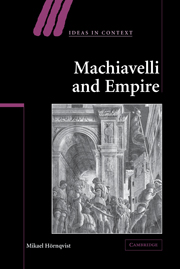Book contents
6 - Rhetoric of hope and despair
Published online by Cambridge University Press: 22 September 2009
Summary
Dangerous conceits are in their natures poisons,
Which at the first are scarce found to distaste,
But with a little act upon the blood,
Burn like the mines of sulphur.
Shakespeare, OthelloSet at that crucial moment in history, when Rome began to break out of the confines of the polis and to emerge as an expansionist power in the pursuit of imperium, Shakespeare's Coriolanus offers one of the most penetrating and disturbing analyses of republican politics in the Western tradition. The play opens and ends with two triumphal processions, one fairly traditional and the other highly unconventional. Having almost singlehandedly fought and defeated the city of Corioles, the Roman patrician Caius Marcius returns to Rome in triumph, carrying with him the title Coriolanus that Cominius, his fellow commander, has given him. The conqueror's moment of glory is short-lived, however. In his disastrous campaign to be elected to the consulship, Coriolanus displays contempt for the people, makes himself hated by the majority, and is banished from Rome as a result. The exiled triumphator makes his way to Antium, where he takes hire with the Volsces, long-time enemies of Rome. Soon, the arrogant and self-complacent Romans will have reason to regret their rash decision, as Coriolanus leads the Volscian army in an assault on the city, spreading panic among his internally divided and defenseless compatriots.
- Type
- Chapter
- Information
- Machiavelli and Empire , pp. 194 - 227Publisher: Cambridge University PressPrint publication year: 2004

